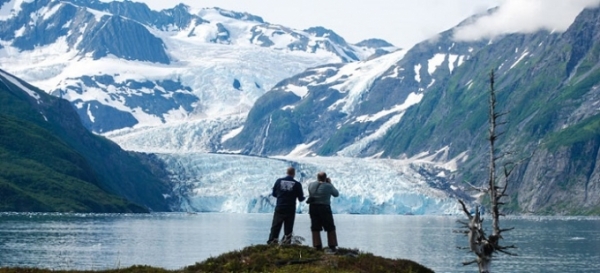Global warming may alter the shape of planet earth with melting glaciers

So how does global warming cause our planet to change? It all comes down to erosion. The researchers compared glaciers in Patagonia and in the Antarctica Peninsula. In the end, the researchers found that glaciers in warmer Patagonia moved faster and caused more erosion than those in Antarctica, as warmer temperatures and melting ice helped lubricate the bed of the glaciers.
"We found that glaciers erode 100 to 1,000 times faster in Patagonia than they do in Antarctica," said Michele Koppes, one of the researchers, in a news release. "Antarctica is warming up, and as it moves to temperatures above 0 degrees Celsius, the glaciers are all going to start moving faster. We are already seeing that the ice sheets are starting to move faster and should become more erosive, digging deeper valleys and shedding more sediment into the oceans."
So what are the repercussions of this erosion? They add to the already complex effects of climate change in the polar regions. Faster moving glaciers deposit more sediment in downstream basines and on the continental shelves, potentially impacting fisheries, dams and access to clean freshwater in mountain communities.
The Canadian Arctic will feel these effects the most acutely. With more than four degrees Celsius of warming over the last 50 years, the glaciers are on the brink of a major shift that will see them flowing up to 100 times faster if the climate shifts above zero degrees Celsius.
The findings are published in the journal Nature.

Facebook comments